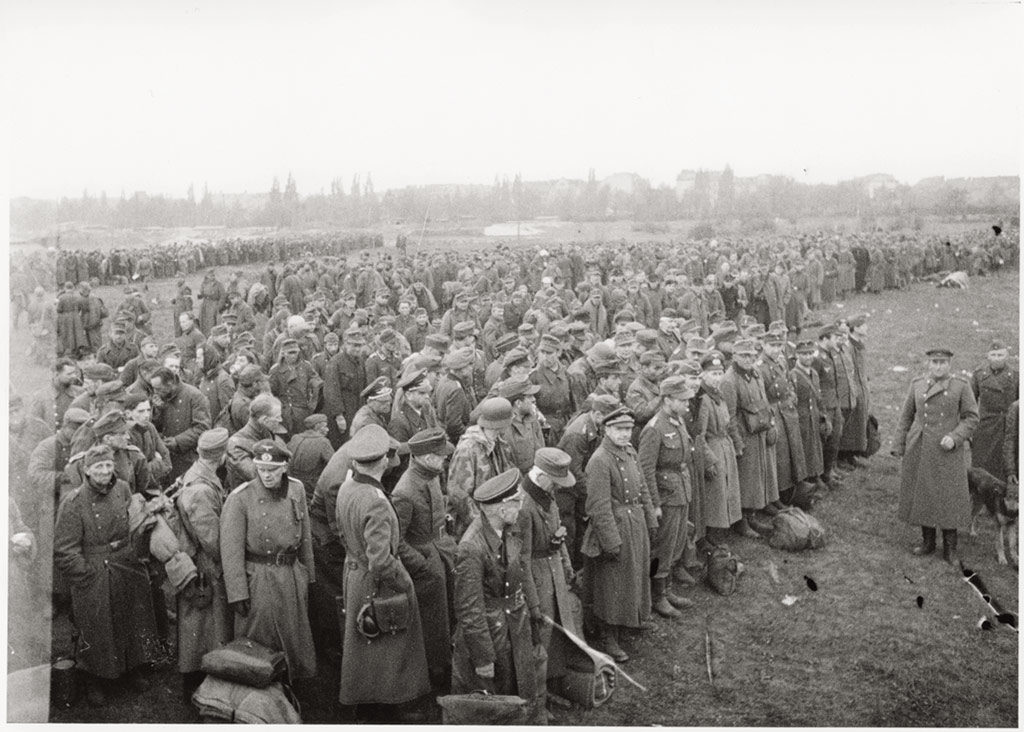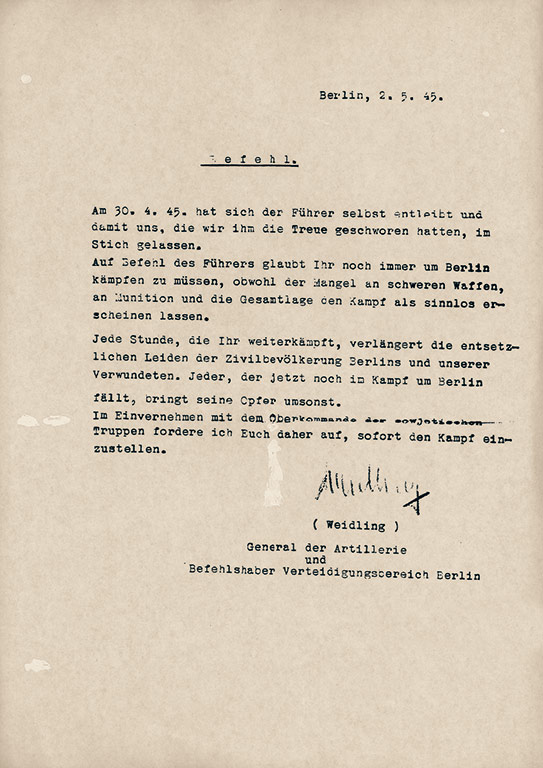- Point of Interest
- Schulenburgring 2, Berlin, Allemagne
After the Soviet troops had occupied the Reichstag on 1 May 1945, German defeat was imminent. On 2 May, Soviet intelligence received a radio message from the German 56th Armored Corps requesting an armistice. Later that morning, corps commander General Helmuth Weidling signed the order of surrender, which was then conveyed to all soldiers of the Berlin garrison.
After Adolf Hitler had committed suicide on 30 April 1945 and the Soviet troops had occupied the Reichstag on 1 May 1945, German defeat was imminent. On 2 May, Soviet intelligence received a radio message from the 56th Armored Corps led by General Helmuth Weidling requesting an armistice after a day of failed negotiations for a conditional surrender.
Later that morning, Weidling, corps commander and the last commander of the Berlin Defence District, was brought to Schulenburgring 2 in Berlin Tempelhof.
A few days before, on 27 April 1945, shortly after the Soviet occupation of the Berlin Tempelhof Airport, General Vasily Chuikov had moved his field headquarters from Johannisthal Airfield in south-eastern Berlin to Schulenburgring 2 in Tempelhof. Instead of the airport building he chose a traditional Berlin apartment building which he used until 4 May 1945.
In the ground floor apartment of a certain Mrs. Anni Goebels, Weidling signed the order of surrender to all soldiers of the Berlin garrison. This signature meant the end of the Second World War for Berlin. Six days later, the unconditional surrender of the entire German forces was signed in nearby Berlin’s Karlshorst district.
The human cost of the battle of Berlin had been enormous. The Soviets counted over 80.000 dead. German losses are estimated at almost 50.000.


